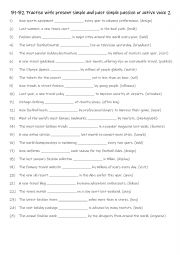
|
B1-B2 Practise with present simple and past simple passive or active voice 2
Understanding both voices help students become more versatile in expressing ideas, improving their ability to describe events and actions in the present and past from different perspectives. First, students need to familiarise themselves with the 2 tenses using both the active & passive voice. Then they read the sentences to see which one is needed...
Level: intermediate
Age: 10-100
Type:
Downloads: 110
|
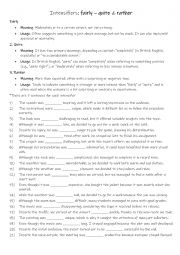
|
B1-B2 Intensifiers - fairly- quite - rather
Students read the meaning and usage of the 3 intensifiers, then read each sentence to see which quantifier is needed to complete the sentence. Answers on page 2 with an explanation why that one was used.
Level: intermediate
Age: 9-100
Type:
Downloads: 139
|
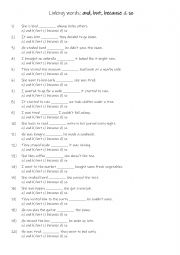
|
A1-A2 Linking words and, but, because & so
Students read the sentences and complete the gap-fill with one of the four multiple choice conjunctions. Answers on page 2.
Level: elementary
Age: 8-100
Type:
Downloads: 103
|
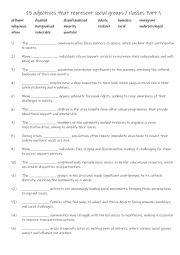
|
B2-C1 15 adjectives that represent social groups & classes Part 1
Adjectives that represent social groups or classes are essential for describing various sections of society. These adjectives highlight different social, economic, cultural, or demographic groups and help to frame discussions about social issues, policies, and dynamics in an informed way. These adjectives help you describe different social groups a...
Level: advanced
Age: 10-100
Type:
Downloads: 128
|
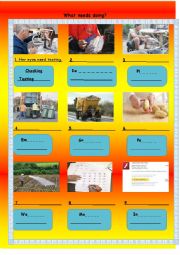
|
What needs doing? Part 5 of 5
Students to complete the verb then make sentences (oral or written) using need/s + verb ing for each picture. For higher level students where possible they think of another suitable synonym which could also be used. See example on first picture.
Answer key included.
Level: elementary
Age: 9-100
Type: activity-card
Downloads: 262
|
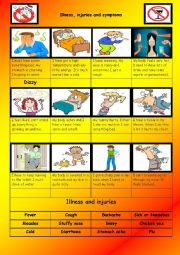
|
Illness, injuries and symptoms
Students to read the symptoms and match the problem to its medical term / condition. Part 1 of 2
Level: elementary
Age: 7-100
Type: worksheet
Downloads: 320
|
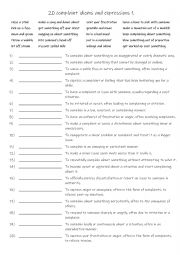
|
B1+-C1 20 complaint idioms and expressions 1
First, students need to familiarise themselves with the 20 idioms and expressions and their meanings. Then they read the definitions to see which one is being described and write that word in the space provided Answers on page 2.
Level: intermediate
Age: 12-100
Type:
Downloads: 104
|
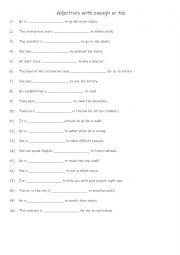
|
A2-B1 Adjectives with enough or too 3
Students read the sentences and using a suitable adjective they complete the sentences using either enough / too. Answers on page 2.
Level: intermediate
Age: 7-100
Type:
Downloads: 106
|
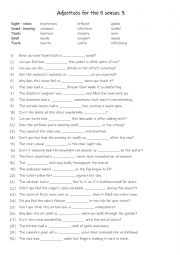
|
A2+-B1 Adjectives for the 5 senses 3
Mastering such language fosters creativity, improves storytelling, and builds confidence in expressing sensory experiences. Ultimately, this enriches their ability to communicate thoughts, emotions, and observations effectively in both academic and real-world settings. First, students need to familiarise themselves with 15 adjectives and check thei...
Level: elementary
Age: 9-100
Type:
Downloads: 105
|
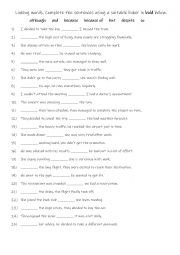
|
A2+-B1 Linking words. Complete the sentences using a suitable linker in bold below.
Linking words. Students complete the sentences using a suitable linker in bold below.
although and because because of but despite so. Answers on page 2.
Level: intermediate
Age: 10-100
Type: worksheet
Downloads: 124
|












